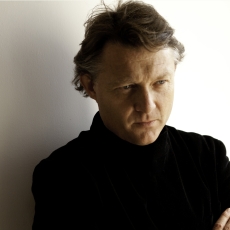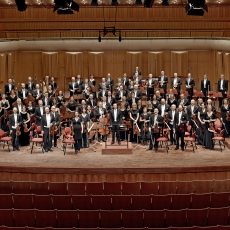Robin Ticciati - Swedish Radio Symphony Orchestra - Berlioz: L'enfance du christ - Infodad
Dvorák was never the master of orchestration that Berlioz was - very few composers have approached the Berlioz level - but listeners who know Berlioz mainly through the drama of Symphonie Fantastique, Les Troyens and the concert and opera overtures may be far less aware of the subtleties of orchestral writing that give the composer's music much of its unique sound. Those subtle touches are fully in evidence in the new recording of L'enfance du Christ conducted by Robin Ticciati, who has already proved his understanding of the composer in Linn Records SACDs of Symphonie Fantastique, Les nuits d'été and La mort de Cléopâtre. A dramatic oratorio with elements of opera, especially in the first of its three parts, L'enfance du Christ is quieter, gentler and more reverent than Berlioz' more-familiar works. Perhaps its most accessible elements are the scene in Part I between Herod and the soothsayers, and the well-known 'L'adieu des bergers' ('Shepherds' Farewell') in Part II. The peculiar sonorities at the very opening of the music clearly show Berlioz' expertise in orchestration, and the composer's use of a rather old-fashioned style through much of the overall work shows how elegantly and eloquently he could express himself without needing the sort of forward-looking effects that pervade Symphonie Fantastique. The Swedish Radio Symphony Orchestra plays this music very well indeed...the Swedish ensemble's approach provides a comfortable lushness that listeners will find quite attractive, with particular warmth in 'L'adieu des bergers' - a scene in which the Swedish Radio Symphony Choir also excels. The four soloists are all very fine indeed. Alastair Miles impressively handles both the nervous tension of Herod in Part I and the highly sympathetic portrayal of the Father of the Family in Part III. Véronique Gens and Stephan Loges, as Mary and Joseph, blend well together and sing feelingly. And as the narrator, Yann Beuron provides the context of the work with skill and expressiveness. L'enfance du Christ is not one of Berlioz' most immediately attractive pieces and not one of his most carefully worked through: he assembled it over a number of years before eventually presenting it in final form in 1854. Yet the gentle lyricism of this work, when managed with the skill that Ticciati brings to this performance, is winning, and gives the music considerable staying power-abetted by Berlioz' very high sensitivity to the expressive potential of all the sections of the orchestra, both individually and in combination.






